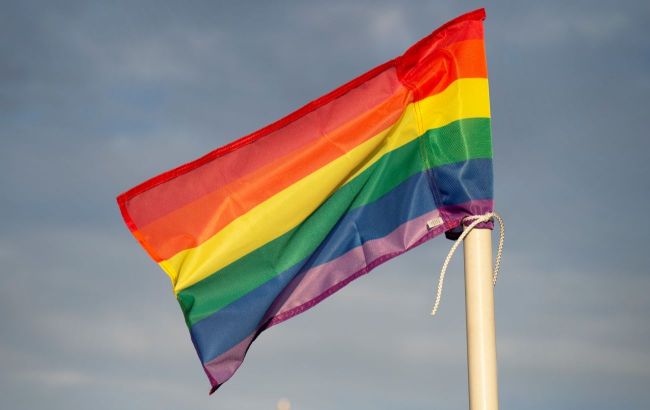6 signs of internal homophobia
 6 signs of internal homophobia (photo: Getty images)
6 signs of internal homophobia (photo: Getty images)
People with internal homophobia sometimes believe that their orientation is something dreadful and abnormal and that it should be concealed, but this is a mistake, according to women's magazine Wonderzine.
Sign 1. Fear and shame of feeling attracted to people of the same sex
Internal homophobia is primarily about the rejection of homosexuality in oneself. If a person believes that the attraction to his sex is unnatural, immoral, or sinful, then, feeling it outside of his own will, he can worry, feel ashamed, and fear themselves.
Being ashamed of their orientation, a person directs the hatred and frustration imposed by society on himself. This can lead to destructive feelings, deterioration of mental health, and chronic stress.
Sign 2. "I'm afraid that others might see me as a queer person"
People with internalized homophobia may feel the influence of other social prejudices, including gender biases. Through the prism of conservative views, some fragments of behavior, lifestyle, preferences, and occupations can be considered "gay", "lesbian", "unfeminine", etc.
So out of fear of judgment and in an attempt to "fix" some may scrupulously avoid anything stereotypically associated with LGBT+, even if this means limiting themselves.
Sign 3. Fear of inauthenticity
Too high demands on oneself, insecurity, and uncertainty with one's own identity can also be signs of internal homophobia. Some may believe that they cannot be "real" gay or lesbian because the images of homosexual people in their imagination are quite stereotypical - like masculine lesbians and feminine gays.
Others may analyze their own experiences too closely and look for the smallest reasons why they "do not fit" the homosexual part.
For example, someone will remember how in childhood she dreamed of a prince, how in adolescence she liked an actor, and how she once met a classmate.

Signs of internal homophobia (photo: Freepik)
Sign 4. You need to hide your preferences and partners
People with internal homophobia are sometimes convinced that their orientation is something like a "dark side" that should be avoided by all means, if not suppressed, then at least hidden from the public. They equate their desires and preferences with perversions and obscenities, which supposedly should not be discussed even with close people.
In such a worldview, same-sex relationships are not considered as one of the options for the norm, but as something low and reprehensible.
Sign 5. Feeling irritated by LGBT activists
This can be explained by the stereotyping of LGBT people, who are shown as strange, obscene, and sometimes even aggressive. Queer people are also affected by systemic homophobia, which in every way separates homosexuality from the norm and adequacy. This scares off, in particular, the queer people themselves, forcing them to demonstrably turn away from the LGBT community for the sake of their image.
Sign 6. "People of the same sex do not have full-fledged relationships"
People with internal homophobia, especially those who want a long-term relationship, may not believe in the prospects of same-sex relationships. They are often convinced that lesbians and gays meet for a short time or lead an unstable lifestyle, constantly changing partners.
Such prejudices grow out of systemic homophobia in culture, education, and society. All this has led to the fact that even those who would like to meet people of their sex are sometimes afraid of unhappy and "unreal" relationships, and also do not want to have a stereotypically homosexual lifestyle.
This material is for informational purposes only and should not be used for medical diagnosis or self-treatment. Our goal is to provide readers with accurate information about symptoms, causes, and methods of detecting diseases. RBС-Ukraine is not responsible for any diagnoses that readers may make based on materials from the resource. We do not recommend self-treatment and advise consulting a doctor in case of any health concerns.

